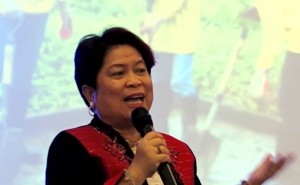
The Philippines recently served as host to delegates from 13 nations for the second Asia Regional Conference on community-driven development (CDD) in Cebu City last March 24-27, 2015.
CDD is a development approach that puts power back in the hands of the people and where citizens work hand-in-hand with government and non-government organizations to ensure that their needs are met and they become actively involved in local processes.
The activity is sponsored by the Asian Development Bank (ADB), the Australian Department of Foreign Affairs and Trade (DFAT), and the World Bank. The recently-concluded conference served as an avenue for representatives of CDD-practicing countries to examine the gains and challenges of mainstreaming the approach in local social development strategies, even in the context of disaster and conflict.
The delegates were government and non-government officials from Vietnam, Mongolia, Indonesia, India, Myanmar, Pakistan, Papua New Guinea, Timor-Leste, Laos, Solomon Islands, Thailand, Afghanistan, and Vanuatu. They discussed lessons on their respective country’s implementation of CDD, as well as constraints and innovative practices to make it more effective in addressing multi-dimensional causes of poverty and marginalization.
Department of Social Welfare and Development (DSWD) Secretary Corazon Juliano-Soliman served as one of the keynote speakers during the conference.
She discussed the Kapit-Bisig Laban sa Kahirapan-Comprehensive and Integrated Delivery of Social Services (Kalahi-CIDSS) of the DSWD. Started in 2003, it was recently scaled up into a national CDD program.
She described how the pursuance of a CDD strategy is a logical step. “In the last ten or so years, the idea of ‘citizens driving development’ has moved from the realm of “novelty” to the realm of ‘common sense’ in government development practice,” she said.
She continued, “ has given back the voice and the vote of the people by engaging them in problem-solving processes, and has fanned the spirit of community empowerment that is so alive in many parts of our country today. This is CDD’s true achievement.”
She also discussed how CDD helps promote transparency and accountability, not just in terms of finance but also in project management, as it mobilizes citizens to serve as watchdogs of their own resources.
“Because the process is known to all and the decisions are known to all, the people can engage each other as well as the duty-bearers,” she said.
Aside from discussing empowerment and transparency, DSWD Assistant Secretary Camilo Gudmalin also shared how Kalahi-CIDSS helped increase the following in the areas it covered: household income, marketing of livestock and produce, household group membership, inter-barangay trust, participation in village assemblies, and employment rates, particularly of women. These findings were revealed during the 2010 impact evaluation of Kalahi-CIDSS, conducted by the World Bank. The same study also revealed that covered areas also now have year-round access to basic services through the sub-projects implemented by the program.
According to Sec. Soliman, the gains of Kalahi-CIDSS has led to its national scale-up, which will now target the coverage of 847 poor municipalities across the country, 554 of which were affected by Typhoon Yolanda.
The government is investing more than P47 billion over a period of seven years to find locally-identified projects which will improve communities’ access to basic services and carry out post-disaster rehabilitation following the impact of the supertyphoon last November 8, 2013.
“To have been entrusted with such an amount is a humbling responsibility,” Sec. Soliman said.
Despite the accomplishments of Kalahi-CIDSS and the projected gains of its scale-up, challenges in its implementation remain, which include the resistance of some local elites to power-sharing and perceptions that CDD follows a long and cumbersome process.
She also emphasized that inter-agency coordination is necessary to ensure that complementation and not duplication will happen when community-driven projects are implemented.
Even so, she said she remains hopeful for the implementation of CDD in the country, saying, “More than the science and the art, the Philippine CDD experience is a statement of faith in people, and in their capacity to talk and engage with government and with each other, in dialogue as a community, as the foundation of true development.”###


